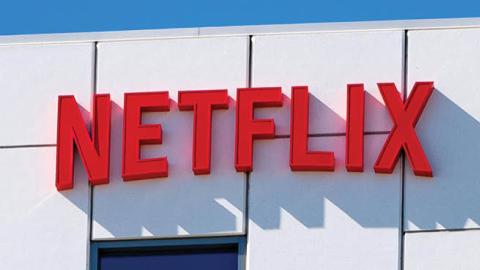Shows like Westworld" or "Stranger Things" have been a staple of life during the COVID-19 pandemic, as America has sat at home. But sophisticated thieves are taking advantage of the quarantines to illegally stream copyrighted movies and TV shows. Piracy of streamed content is "estimated to have increased an unprecedented 40 percent or more since the shutdowns began.
These pirates get away with this theft because federal law doesn't properly punish egregious infringement by these piracy websites that illegally stream copyrighted movies or shows. This is not small-scale or individual acts of piracy by teenagers. These are large-scale, commercial websites operated by sophisticated thieves who make massively illicit profits.
Thankfully, this is an easy problem to fix. Congress can raise the penalties for illegal streaming to align the law with the similar widescale pirating of books or DVDs. This will better protect the fruits of the creative labors of artists, as well as the streaming companies that invest millions in producing and distributing these movies and TV shows. Consumers will also benefit from the continued creation and distribution of creative works streamed directly to their homes.
Even before the COVID-19 pandemic, we were all enjoying a "second golden age of television," as streaming services brought an explosion in diverse, high-quality, original movies and TV shows. With the invention of broadband and 4G, movies and TV shows can be streamed to personal computer devices.
Streaming has changed the game. Previously, movies could only be seen in theaters, rented as DVDs from stores like (now-bankrupt) Blockbuster or delivered in the mail by Netflix. Now, they are merely a click away.
Netflix shifted its business model from mailing DVDs to streaming. It created an extremely competitive new marketplace. More companies jumped in, such as Amazon Prime Video and, more recently, Disney+ and Apple TV. Streaming is one of the most common uses of the internet, as more than half of peak internet traffic is from streaming.
Piracy websites setup by large-scale and economically sophisticated thieves threaten to squelch this revolution that benefits artists, the creative industries and consumers alike. Instead of Netflix profiting from Ozarks" and Disney from "The Mandalorian," the fruits of their productive labors go to pirates who steal the content and distribute it on websites for "free." These websites also often "plant malware on consumers' devices.
Piracy is not free"—nor is it a "victimless crime." It harms creators and, ultimately, consumers by diminishing economic growth in the creative industries, reducing job growth and reducing products and services for consumers. The U.S. Chamber of Commerce "estimates that 80 percent of online piracy is now in streaming copyrighted works and that this piracy reduces economic activity by at least $29.2 billion a year.
This piracy is increasing, and only causing more economic harm, because there's no effective punishment or deterrence. Streaming piracy results only in a misdemeanor offense—if it's prosecuted at all. This makes illegal streaming lucrative for criminals because the consequences are so low.
But this is merely an accidental legal loophole. Similar acts of piracy of books or DVDs result in felony charges. Criminals have taken note: Pirating a DVD results in serious criminal sanctions, but pirating a Netflix show results in a slap on the wrist.
There's no reason for the different legal treatment. Both offenses represent the same acts of deliberate, commercial piracy. Both should be punished the same.
Congress can easily change the law to close this loophole. It should do so.
The law punishes deliberate, large-scale theft of property in order to secure the rights of owners and to ensure the benefits of civil society. Trespass is not just an act of civil liability. Deliberate and egregious violations of property rights are also criminal acts.
Criminal punishment for violations of property rights rightly punishes egregious wrongdoers and deters more illegal activity. In the context of copyright law, it also protects and promotes the millions invested in creating and distributing artistic works to consumers. This is why the Department of Justice has endorsed this legal reform.
It is also a basic requirement of the rule of law that the same acts be treated similarly; deliberate, commercial piracy of streaming content should be treated the same as deliberate, commercial piracy of other copyrighted works.
This important legal reform will secure benefits for creators and consumers alike in the ongoing creative revolution in streaming content. In our new age of COVID-19, companies like Netflix and Amazon Prime are reshaping how we consume media. It is crucial these companies reap the benefits of their innovations and creative labors. Accordingly, Congress must act quickly.
Read in Newsweek


















